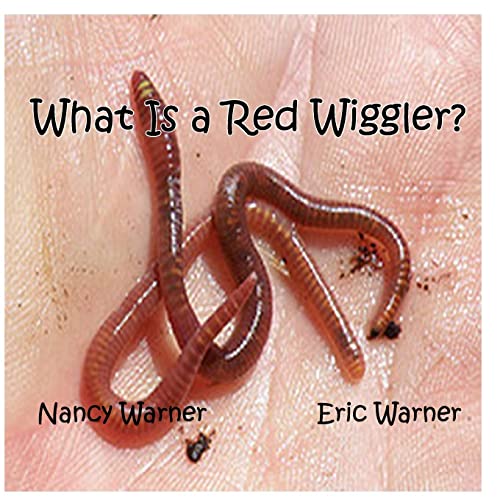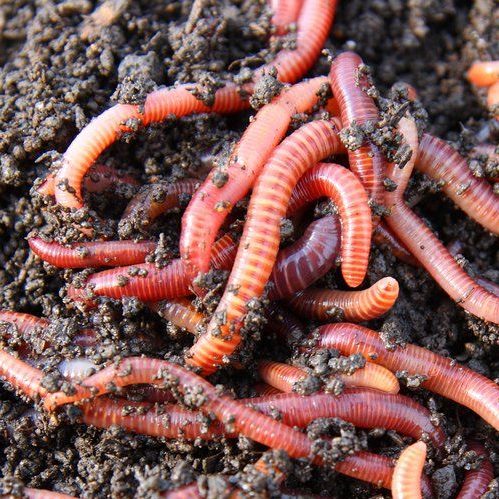Comprehensive Lawn Care Products from Red Wiggler Express
Comprehensive Lawn Care Products from Red Wiggler Express
Blog Article
Unlock the Keys of Red Wigglers: Your Overview to Composting Success
The combination of red wigglers right into composting practices provides a substantial opportunity for enhancing dirt health and advertising sustainability. These organisms are not just efficient recyclers of organic waste; they supply a myriad of benefits that can change yard monitoring. Recognizing their needs and actions is vital for maximizing their potential, from establishing an ideal worm bin to feeding them the best materials. As we discover the essential elements of successful vermicomposting, one could question how these small animals can cause a more vivid and effective garden ecological community.

What Are Red Wigglers?
(Red Wiggler Express)Red wigglers, medically referred to as Eisenia fetida, are a varieties of earthworm mainly used in composting as a result of their impressive ability to break down raw material successfully. These worms are identified by their reddish-brown pigmentation and a segmented body, commonly measuring in between 3 to 4 inches in length. Unlike other earthworm species, red wigglers flourish in rich, organic atmospheres, making them suitable for vermicomposting systems.
Belonging To The United States And copyright, they are typically discovered in decomposing fallen leaves and compost heap, where they play a critical function in nutrient recycling. Their adaptation to living in a damp, cardiovascular atmosphere allows them to take in large amounts of organic waste, simplifying into nutrient-rich castings that boost dirt health and wellness.
Red wigglers recreate rapidly, with a solitary worm capable of creating numerous cocoons each week, each consisting of numerous hatchlings. Understanding the biology and actions of red wigglers is essential for maximizing their possibility in composting applications.
Advantages of Using Red Wigglers
Using the power of red wigglers in composting uses various benefits that enhance dirt health and advertise sustainable waste administration. These impressive microorganisms efficiently break down natural matter, transforming cooking area scraps and backyard waste into nutrient-rich vermicompost. This finished product is extremely helpful for plant development, as it boosts dirt structure, raises moisture retention, and enhances nutrient availability.

(Red Wiggler Express)In addition, the presence of red wigglers in your composting system can increase the composting procedure, producing top notch compost in a portion of the moment contrasted to traditional methods. The castings created by these worms are also bursting with valuable microbes that better enrich the dirt ecological community.
Establishing Up Your Worm Bin
Developing a reliable worm bin is an uncomplicated process that can dramatically improve your composting efforts. The primary step is picking an appropriate container. Worm containers can be made from plastic storage space bins, wood boxes, or readily Your Domain Name offered worm bins. Guarantee the container has sufficient drain and ventilation holes to maintain optimum moisture levels and airflow.
Following, prepare the bed linens material, which serves as the worms' environment. A mix of shredded paper, cardboard, and coconut coir functions well, offering a comfortable setting for the worms.

Feeding Your Red Wigglers
To guarantee the health and wellness and efficiency of your red wigglers, it is vital to give them with a balanced diet that satisfies their dietary demands. Red wigglers grow on a varied range of natural materials, which not only provide needed nutrients but also promote effective composting.
Begin by incorporating kitchen scraps such as vegetable peels, fruit cores, and coffee grounds. Stay clear of citrus fruits, onions, and garlic, as these can be damaging to worm health. Furthermore, present shredded paper, cardboard, and dry fallen leaves to produce a well-aerated environment.
Feeding regularity need to be kept track of; usually, worms can eat half their body weight in food weekly. It is essential to prevent overfeeding, as excess food can result in undesirable odors and bring in parasites. An excellent method is to add food in percentages, enabling worms to refine it prior to introducing extra.
Preserving wetness degrees is additionally crucial; the bed linen needs to be moist yet not soaked. Be certain to regularly examine the temperature level and pH degrees of the container to make sure an ideal environment for your red wigglers, ultimately boosting their composting effectiveness.
Harvesting and Utilizing Garden Compost
A successful composting process with red wigglers culminates in the abundant, dark garden compost recognized as vermicompost, which can substantially enhance dirt health and plant development. Gathering this nutrient-dense material commonly happens every 3 to six months, relying on the dimension of your system and the amount of organic matter being refined.
To gather, delicately different the garden compost from the worms and any undecomposed materials. One reliable technique entails relocating the materials of the container away and including fresh bed linens and food to the void, encouraging the worms to move. After a couple of days, the garden compost can be gathered from the contrary side.
It is crucial to make use of vermicompost correctly to maximize its advantages. It can be made use of as a leading clothing for yard beds, blended into potting dirt, or made into a nutrient-rich liquid fertilizer called "worm tea." This application approach assists to provide essential nutrients directly to plant origins, advertising healthier development. By including vermicompost into your gardening routine, you not only reuse organic waste but also create a growing ecosystem that sustains lasting horticulture methods.
Verdict
In recap, red wigglers work as outstanding allies in composting efforts, changing natural waste right into nutrient-rich vermicompost (Red Wiggler Express). Their distinct biological attributes and efficient waste processing capabilities contribute dramatically to sustainable gardening methods. By comprehending the optimal problems for their environment, feeding needs, and garden compost harvesting methods, gardeners can improve soil wellness and advertise plant vigor. Embracing vermicomposting not just reduces land fill waste but also fosters a more ecologically responsible technique to horticulture and resource administration.
Report this page